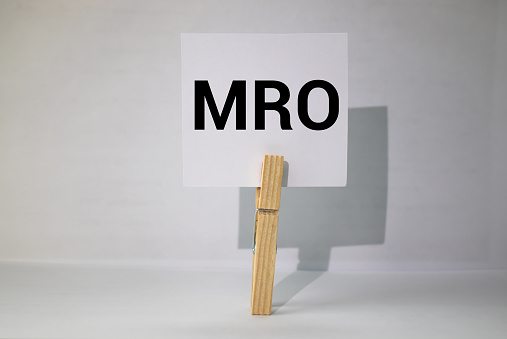In any business, Maintenance, Repair, and Operating Supplies (MRO) play a substantial role in the industry’s seamless operation. The acronym MRO indicates all kinds of supplies/services that are not visible in the final product yet are required in the production process. Therefore, they are very much a part of the product, and any delivery cannot be named complete without these supplies/services.
The MRO market is steadily growing worldwide, and by the end of 2022, the value is expected to touch $700 billion. Mature markets include European countries like Germany, France, Belgium, and the Netherlands are mature markets, whereas India, Canada, Japan, and Brazil are growing MRO markets. That being said, multiple aspects like supplier demographics, industry dynamics, consumables involved, and a comprehensive understanding of the factors mentioned above are vital in the effective functioning of any industry.
A Quick Glance at MRO in Business through Examples
MRO products can vary depending on the nature of the industry/business. Based on categorical differences, MROs are divided into five: plant supplies, tools involved, consumables, furniture, and machinery/technology. As we all are aware, industrial plants require mechanical instruments in the manufacturing of their products. Tools such as wrenches, pumps and compressors, and supplies like lubricants are essential in machines’ smooth operation though they do not become part of the final product. The rising demand for refined petroleum products in the oil and mining industry has also forced MRO services in that particular sector.
Electronic equipment requires regular calibration to ensure accurate reading, and the process is an example of MRO for electronic and electrical devices. Calibration at regular intervals is mandatory to confirm that the device is continuing its performance as intended. The process is carried out either by giving the contract to an OEM or experienced calibration service. The decision depends on the cost for calibration, the number of devices that require the assistance, and the ownership policies of this equipment (whether owned/leased).
Cleaning materials like mops, wipes, and bleach and supplies like pencil, pen, and related utensils are included in consumables. The finance team needs to prepare reports, and materials such as printer ink and paper are required to deliver these reports. Lab equipment like test tubes and beakers also come under consumable MRO supplies. In the digital era, technology plays a vital role in the production process. Devices such as printers, computers, and tablets make significant contributions to the manufacturing process’s final output in almost every industry. Automated operations of the plant cannot be fulfilled without the help of computer systems. Lastly, furniture supplies like chairs and desks are also part of MRO procurement since they play a vital role in an organization’s running.
The benefits of investing in MROs are plentiful when it is done skillfully. Enterprising procurement intelligence experts provide viable solutions to businesses after analyzing contemporary market trends using advanced research. Analysts claim a significant reduction in the overall downtime in production when companies use their intermediary resources wisely. Industries worldwide constantly aim to improve their facilities and implement feasible production techniques to reduce gross energy consumption for environmental safety. Regular life-cycle evaluations and arrangement of essential MRO supplies are crucial to support steady production. Lack of these necessary amenities on the production front would gradually lead to ineffectual production and customer defection.
The Role of MRO in Keeping the Business Stable
It is needless to say that MRO supplies/purchases in the production sectors would be significantly more significant when compared with purchases in the office environments. In the manufacturing industries, the bottom line management of a company is directly affected by the number of purchases involved, and hence they need to be handled carefully. With a view towards effective management, the procurement team should always have a clear picture of the inventory to ensure there is no oversupply. Also, the procurement team has to have an eye on frequently used supplies and make purchases well in time to ensure stable production.
The plant managers and procurement team need to be aware of the multiple operations in a facility to ensure its smooth operation. They need to communicate with other teams in the facility to become mindful of the stock availability, storage location, and frequency of usage. In large production plants, the MRO store’s area plays a determining role since the distance from one side of the building to the target location can be too much. It is recommended that companies can optimize the site of MRO stores for better accessibility.










